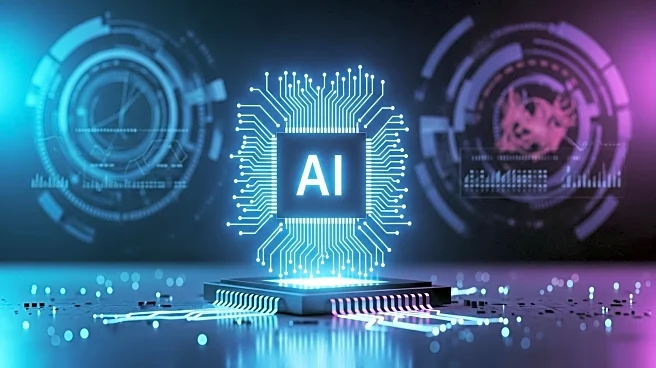What is the story about?
What's Happening?
Dr. Heidy Khlaaf, a 2008 graduate of Paxon School for Advanced Studies, has been named one of TIME Magazine’s 100 Most Influential People in Artificial Intelligence for 2025. Currently serving as the Chief Scientist at the AI Now Institute, Dr. Khlaaf was recognized in the 'Thinkers' category for her work on evaluating the safety and risks associated with artificial intelligence in critical systems, including nuclear power plants, weapons systems, and healthcare. Dr. Khlaaf attributes her success to the interdisciplinary education she received at Paxon, which she credits for shaping her perspective on technology. She also acknowledges the significant influence of her former AP Art History teacher, Dr. Mai Keisling, in her educational journey.
Why It's Important?
Dr. Khlaaf's recognition highlights the growing importance of evaluating AI's role in safety-critical systems, a field that is becoming increasingly relevant as AI technologies are integrated into essential infrastructure. Her work underscores the need for rigorous safety assessments to prevent potential risks associated with AI deployment in sensitive areas. This recognition by TIME Magazine not only elevates Dr. Khlaaf's profile but also brings attention to the critical need for responsible AI development and implementation. The acknowledgment of her contributions may inspire further research and policy development aimed at ensuring AI technologies are safe and reliable.
What's Next?
Dr. Khlaaf's recognition could lead to increased collaboration opportunities with other experts and institutions focused on AI safety. It may also prompt policymakers and industry leaders to prioritize the development of frameworks and regulations that address the risks associated with AI in critical systems. As AI continues to evolve, the insights and research provided by experts like Dr. Khlaaf will be crucial in guiding the safe integration of AI technologies into society.
Beyond the Headlines
The recognition of Dr. Khlaaf's work by a major publication like TIME Magazine may influence educational institutions to emphasize interdisciplinary studies, which can foster innovative thinking and problem-solving skills in students. Additionally, it highlights the role of educators in shaping future leaders in technology and other fields, emphasizing the long-term impact of quality education and mentorship.















